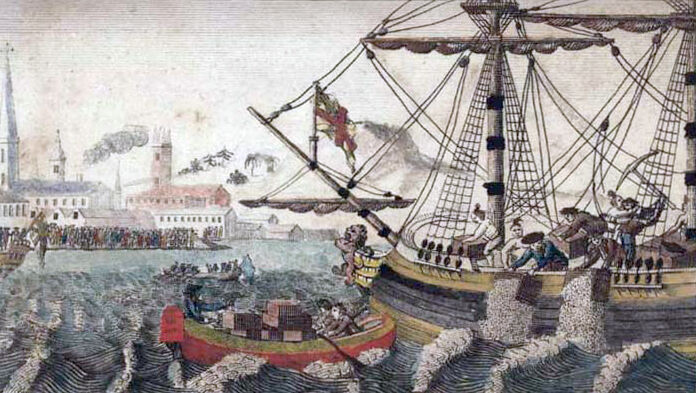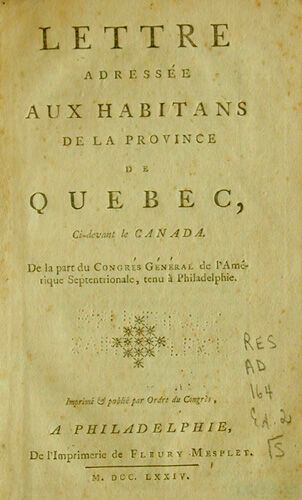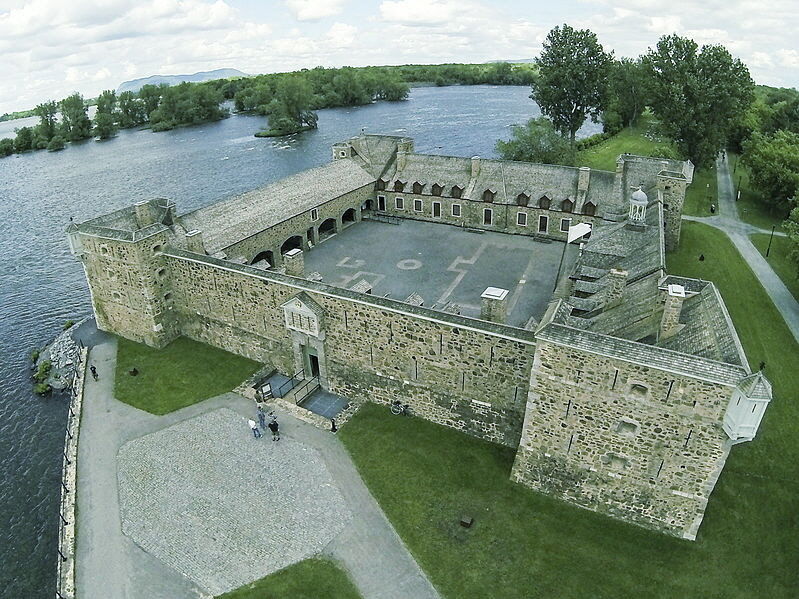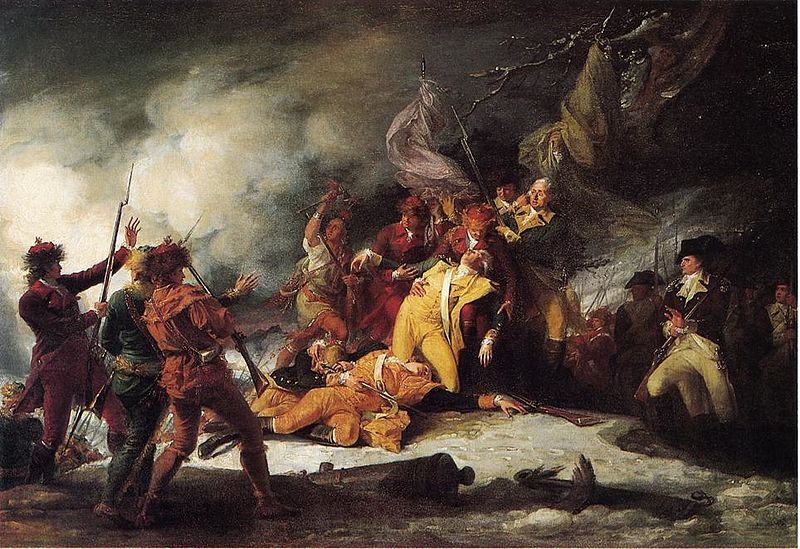In 1763, Great Britain signed the Treaty of Paris, ending the war against France. Gains for the British included numerous colonies, such as New France, which became the Province of Quebec. However, this war was very costly despite the colonial acquisitions. In the years that followed, King George III and the British Parliament voted to adopt various laws raising taxes on inhabitants of the British colonies to replenish State coffers.
The new taxes Great Britain imposed on products such as stamps, sugar and tea were very poorly received by the Thirteen Colonies. They felt these taxes were unfair since the British elected officials voted for them, rather than the colonies’ inhabitants. Their slogan was “No Taxation Without Representation.” London maintained its position despite numerous petitions and protests. In 1773, protesters dumped chests of British tea into the harbour during the Boston Tea Party, an event that finally made the government in Great Britain react.

Rendering of the Boston Tea Party
Following the Boston Tea Party, the British government decided to limit the powers of the colonial elected officials through laws called the “Coercive Acts”. The elected officials of the Thirteen Colonies called them something else: the “Intolerable Acts”. Among these Acts deemed as intolerable was the Quebec Act of 1774, which granted the Canadiens land in the Ohio Valley that the Thirteen Colonies wanted.
For many colonists, these laws were the last straw. Armed conflicts between the continental army of the Thirteen Colonies and imperial troops broke out in 1775. The Thirteen Colonies fought the British army to gain their independence until 1783. This was the American Revolution.
Representatives of the Thirteen Colonies sought help fighting the British army, which was considered the most powerful in the world. In 1774, copies of a letter written by the United Colonies’ General Congress were sent from Montreal to the City of Quebec to urge Canadiens to join the revolutionary movement.

A copy of the letter written by the Continental Congress of the United Colonies addressed to people living in the Province of Quebec
Inspired by liberal ideals put forth by the European philosophers of the time, this letter also encouraged Canadiens to demand respect for individual rights and democracy. The Thirteen Colonies even proposed making the Province of Quebec the fourteenth member of the Continental Congress.
The proposal was tempting to some British merchants because they disagreed with some of the conditions of the Quebec Act, such as the reinstatement of French civil laws. However, the fear of losing commercial relationships with Great Britain led many to backtrack.
For Canadiens, it was the opposite. Concessions in the Quebec Act dissuaded Francophones from joining the revolt. The Catholic Clergy, which was very influential among Canadiens, allied with the British authorities. The Church threatened anyone who joined the revolt with excommunication and the refusal of sacraments.
A religious authority can excommunicate one of its members, meaning it can exclude them from the community so they are no longer part of the religious group.
Except for a few individuals who volunteered to defend one of the two sides, most people in the Province of Quebec did not join the cause of the Thirteen Colonies. For various strategic reasons, George Washington, general of the revolutionary army, sent two military troops: one to attack Montreal and the other to attack the City of Quebec.
Richard Montgomery’s army travelled through Lake Champlain and down the Richelieu River to reach Montreal. Even though numerous forts protected this seaway, Montgomery succeeded and took possession of Montreal in November 1775. Carleton, Governor of the Province of Quebec, fled to Quebec City during the night. Even though the majority of the population did not oppose the occupation, relationships between the Canadiens and the Americans were tense and the two sides were increasingly suspicious of each other.

Fort Chambly, one of the fortifications taken by Montgomery and his army while heading down the Richelieu River in 1775
Almost one month later, on December 6, General Benedict Arnold and his army attempted to take Quebec City. The attempt failed because the city was well-fortified. The invaders had no choice but to lay siege while waiting for reinforcements from Montgomery’s army. However, it was during an attack on December 31, 1775 which was stopped by Canadien militiamen led by Carleton, that Montgomery died.

The death of Montgomery during the battle on December 31, 1775
The defences held strong until the spring of 1776. In June, 36 British navy ships carrying 9000 men arrived as reinforcements with more to follow. The American troops were unable to compete and realized that taking the Province of Quebec was unrealistic, so they withdrew to continue fighting Great Britain within their own territory.